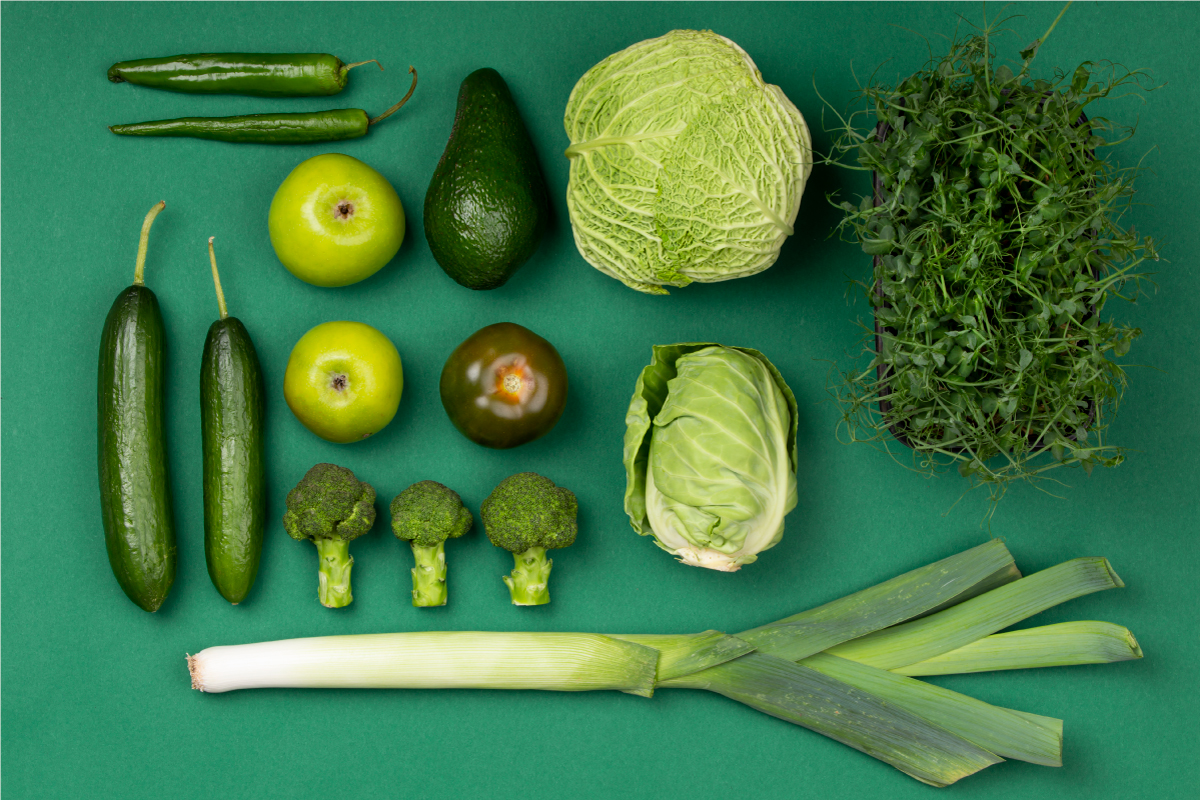Breastfeeding is a crucial time for both the mother and the baby, and the nutritional choices made during this period can significantly impact the health and development of the infant. In the Indian context, certain dietary considerations are important to ensure the well-being of both the mother and the nursing child.In this blog, we’ll explore foods that breastfeeding mothers in India may want to avoid and the reasons behind these recommendations. Lets find out Indian Foods to Avoid During Breastfeeding, but before this know more about healthy breast-feeding:-
Healthy breastfeeding diet – what does it mean?
Indian Foods to Avoid During Breastfeeding
Spicy Foods: Sp Spicy Foods ices, particularly chili peppers, are known to add flavor to dishes but can sometimes cause irritation in a baby’s stomach. The active compounds in spicy foods may transfer to breast milk, leading to discomfort for the infant. While some babies may tolerate spice well, others may be more sensitive, so it’s advisable to introduce spicier foods gradually and monitor the baby’s reactions.

- Reason: Spices like chili peppers can sometimes cause irritation in the baby’s stomach and may lead to fussiness or discomfort. Indian Foods to Avoid During Breastfeeding
- Alternative: Opt for milder spice levels and gradually introduce spicier foods to gauge your baby’s tolerance.
Citrus Fruits: Citrus fruits like oranges and lemons are acidic, and their consumption may alter the pH of breast milk. This can lead to diaper rash or fussiness in some infants. If a baby shows sensitivity to citrus fruits, it’s recommended to opt for less acidic fruits like bananas, apples, or pears as alternatives.
- Reason: Citrus fruits like oranges and lemons can be acidic and may cause diaper rash or fussiness in some babies.
- Alternative: Choose less acidic fruits like bananas, apples, or pears.
Garlic: While garlic is a flavorful addition to many dishes, it can alter the taste of breast milk. Some babies may find the flavor of garlic strong and be less willing to nurse. Moderation in garlic consumption or using garlic-infused oils can help mitigate this effect.

- Reason: Garlic can alter the taste of breast milk, and some babies may be sensitive to its flavor.
- Alternative: Use garlic in moderation or opt for garlic-infused oils for a milder taste.
Caffeine: Caffeine intake, whether from coffee, tea, or other sources, can pass into breast milk and affect a baby’s sleep patterns. Excessive caffeine consumption should be avoided, and mothers can opt for decaffeinated alternatives or limit their intake to prevent potential disruptions in the baby’s sleep.
- Reason: Excessive caffeine intake may make its way into breast milk and affect your baby’s sleep patterns.
- Alternative: Limit caffeine intake by choosing decaffeinated options or consuming in moderation.
Gassy Vegetables: Vegetables such as cabbage, cauliflower, and broccoli can contribute to gas in both the mother and the baby. While these vegetables are nutritious, steaming or cooking them can make them gentler on the digestive system, reducing the likelihood of discomfort for the infant.

- Reason: Vegetables like cabbage, cauliflower, and broccoli can contribute to gas in both the mother and the baby.
- Alternative: Steam or cook these vegetables to make them gentler on digestion.
Fenugreek: Fenugreek is often used to boost milk supply in breastfeeding mothers. However, in some cases, it may cause digestive issues in infants. It’s crucial to consult with a lactation consultant before using fenugreek supplements and to closely monitor the baby’s response.
- Reason: While fenugreek is known to boost milk supply, it can cause digestive issues in some infants.
- Alternative: Consult with a lactation consultant before using fenugreek supplements and monitor your baby’s reaction.
Cow’s Milk: Proteins in cow’s milk can be difficult for some infants to digest, leading to sensitivities. In such cases, mothers may consider dairy alternatives like almond milk or soy milk to provide the necessary nutrients without causing discomfort for the baby.
- Reason: Some babies may be sensitive to proteins in cow’s milk that pass through breast milk.
- Alternative: Consider dairy alternatives like almond milk or soy milk.
Peanuts: Peanuts are a common allergen, and some babies may develop allergies when exposed to peanut proteins through breast milk. If there’s a family history of peanut allergies, it’s advisable to consult with a healthcare professional before including peanuts in the maternal diet.
- Reason: Peanuts may cause allergies in some infants.
- Alternative: If you have a family history of peanut allergies, consult with a healthcare professional before including peanuts in your diet.
Chocolate: Chocolate contains both caffeine and theobromine, substances that can impact a baby’s sleep patterns. While moderate consumption of chocolate may not pose significant issues, opting for dark chocolate with lower caffeine content can be a more breastfeeding-friendly choice.
- Reason: Chocolate contains caffeine and theobromine, which may affect your baby’s sleep.
- Alternative: Opt for small amounts of dark chocolate or chocolate with lower caffeine content.
Onions: Onions are flavorful but may cause colic or gas in breastfed babies. Using onions in moderation and observing the baby’s reactions can help determine whether this particular vegetable affects the infant’s comfort.
- Reason: Onions can sometimes cause colic or gas in breastfed babies.
- Alternative: Use onions in moderation and observe your baby’s reactions.
Seafood with High Mercury Content: Certain seafood, especially those with high mercury content, can be harmful to a developing baby’s nervous system. Choosing low-mercury seafood options like shrimp, salmon, or trout can provide essential nutrients without the associated risks.
- Reason: High mercury levels in some seafood can be harmful to a developing baby’s nervous system.
- Alternative: Choose low-mercury seafood options like shrimp, salmon, or trout.
Alcohol: Alcohol passes into breast milk and can affect the baby’s development and sleep. If mothers choose to consume alcohol, it’s essential to do so in moderation and plan breastfeeding sessions accordingly to minimize potential negative effects.

- Reason: Alcohol passes into breast milk and can affect the baby’s development and sleep.
- Alternative: If you choose to consume alcohol, do so in moderation and plan breastfeeding accordingly. Indian Foods to Avoid During Breastfeeding
Artificial Sweeteners: Some artificial sweeteners may not be well-tolerated by infants. Using natural sweeteners like honey or maple syrup in moderation can be a safer alternative during breastfeeding. Indian Foods to Avoid During Breastfeeding
- Reason: Some artificial sweeteners may not be well-tolerated by infants.
- Alternative: Use natural sweeteners like honey or maple syrup in moderation.
Highly Processed Foods: Highly processed foods with additives and preservatives may transfer certain chemicals to breast milk. Opting for a diet rich in whole, minimally processed foods ensures a healthier nutritional profile for both the mother and the baby.
- Reason: Foods with additives and preservatives may transfer some chemicals to breast milk.
- Alternative: Choose whole, minimally processed foods to ensure a healthier diet.
Read More :- Healthy Breakfast for PCOS
Read More :- Calories in Masala Oats?
Read More :- How to remove wrinkles from forehead
Conclusion:
While these guidelines can provide a general overview of foods to consider avoiding during breastfeeding, it’s crucial to recognize that every mother and baby pair is unique. What works for one may not work for another. It’s advisable for mothers to observe their baby’s reactions to different foods and consult with a healthcare professional or a registered dietitian for personalized advice. Maintaining a well-balanced diet, staying hydrated, and paying attention to the baby’s cues are key elements of successful breastfeeding.
